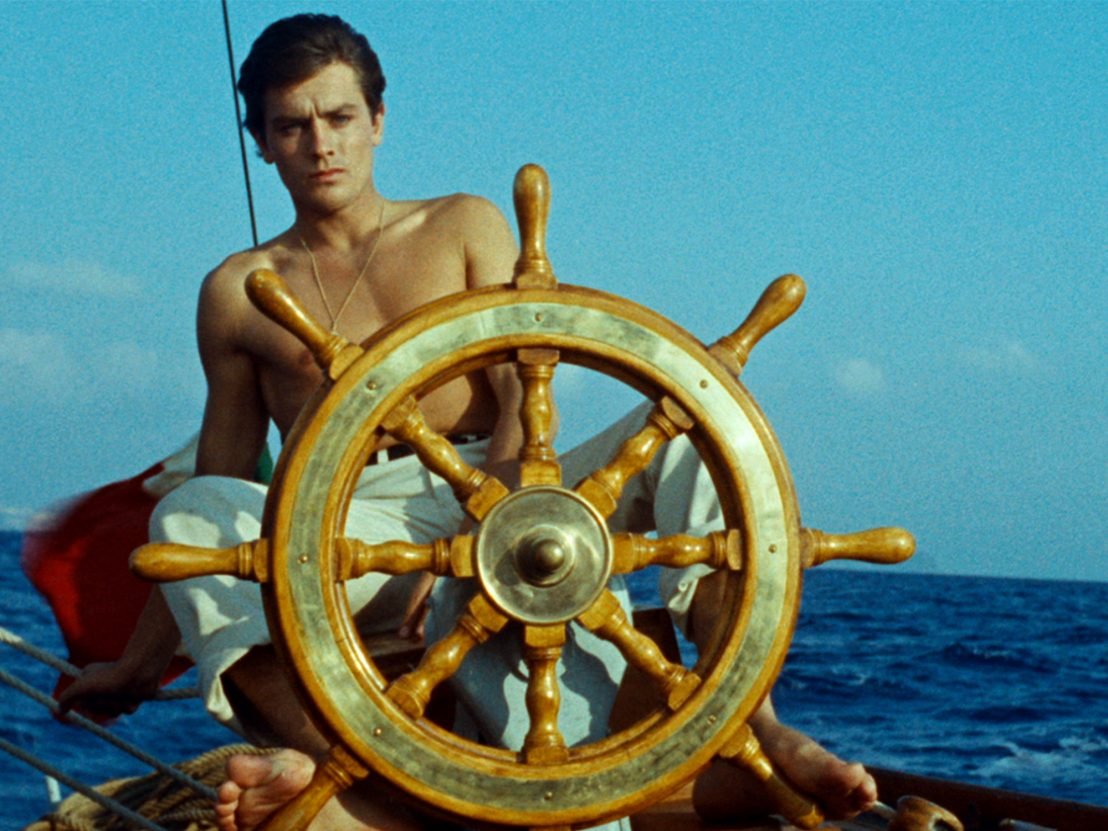LIVE FILM PROGRAM (ALSO AVAILABLE ONLINE THROUGH ZOOM & VIMEO)
Purple Noon (René Clément, 1960, 118min.)
Linda DeLibero, senior lecturer and special advocate for alumni and outreach, and former director of the JHU film and media studies program
The fascination for all things Patricia Highsmith has only skyrocketed since her death in 1995, not least for the numerous film adaptations of her work. Arguably, Purple Noon, along with Hitchcock’s 1951 Strangers on a Train, stands at the top of the list. Highsmith herself was deeply approving of Alain Delon’s performance as her most famous creation, the cunning, amoral Tom Ripley, and who could disagree? Delon is perfectly perverse: his icy beauty and casual bravado dare the viewer not to root for him, despite the murder and mayhem he wreaks. René Clément creates a world of delicious, candy-colored surfaces to complement his hero’s façade, both of which conceal unfathomable darkness. And speaking of moral darkness, Highsmith’s sole objection was to the film’s ending, but whether Clément’s version was more just, only the viewer can decide.
No fee for members, subscribers, and guests of members and subscribers
Film Series Overview - Take 2: Cinematic Adaptations of the Written Word
Adapting any creative work from one medium into a vastly different one is always tricky. Readers of literature, in particular, tend to feel a very strong ownership of any source novel or story that gets the cinematic treatment, and often complain about how much the book has been altered—usually not for the better—in its transformation. But writers and film directors work under vastly different imperatives, and what is good as text may not be good as image, and vice versa. The best adaptations are often those where, faithful or not to the book, the director has a vision, and the movie has a raison d'être beyond the mercenary. Join us as we examine six provocative literary adaptations and explore how the written word translates to the screen. And don’t worry: if you don’t have time to read the original text, we’ll explain how the films compare and contrast with their sources. In order, our movies are Luce (Julius Onah, 2019), Elle (Paul Verhoeven, 2016), The Furies (Anthony Mann, 1950), Purple Noon (René Clément, 1960), Devil in a Blue Dress (Carl Franklin, 1995), and Border (Ali Abbasi, 2018).
